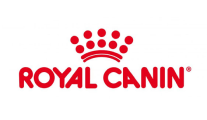- Hill's Prescription Diet z/d Food Sensitivities Dry Cat Food is specially formulated by Hill’s nutritionists and veterinarians to avoid causes of food sensitivities
- Formulated to help avoid skin and digestive signs from adverse food reactions
- Very tasty hydrolyzed animal protein designed to help avoid common food allergens
- Promotes a healthy skin barrier
- Natural fiber to help normalize stool
Hill's Prescription Diet z/d Skin/Food Sensitivities Original Flavor Dry Cat Food
Prescription required.
Learn more
Save $4 by joining PetPlus
Prescription required.
Learn more
Save $4 by joining PetPlus

- Hill's Prescription Diet z/d Food Sensitivities Dry Cat Food is specially formulated by Hill’s nutritionists and veterinarians to avoid causes of food sensitivities
- Formulated to help avoid skin and digestive signs from adverse food reactions
- Very tasty hydrolyzed animal protein designed to help avoid common food allergens
- Promotes a healthy skin barrier
- Natural fiber to help normalize stool











































